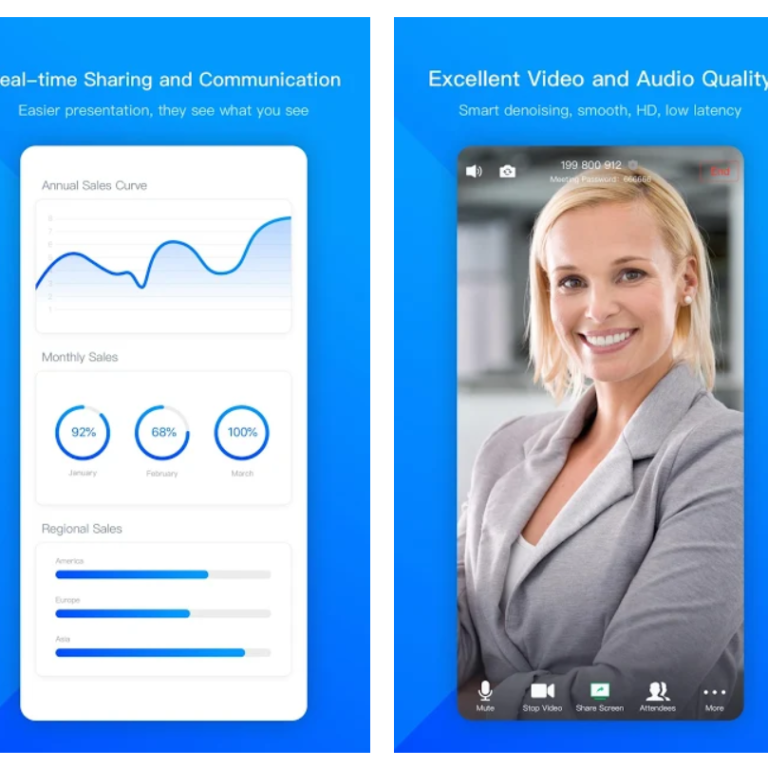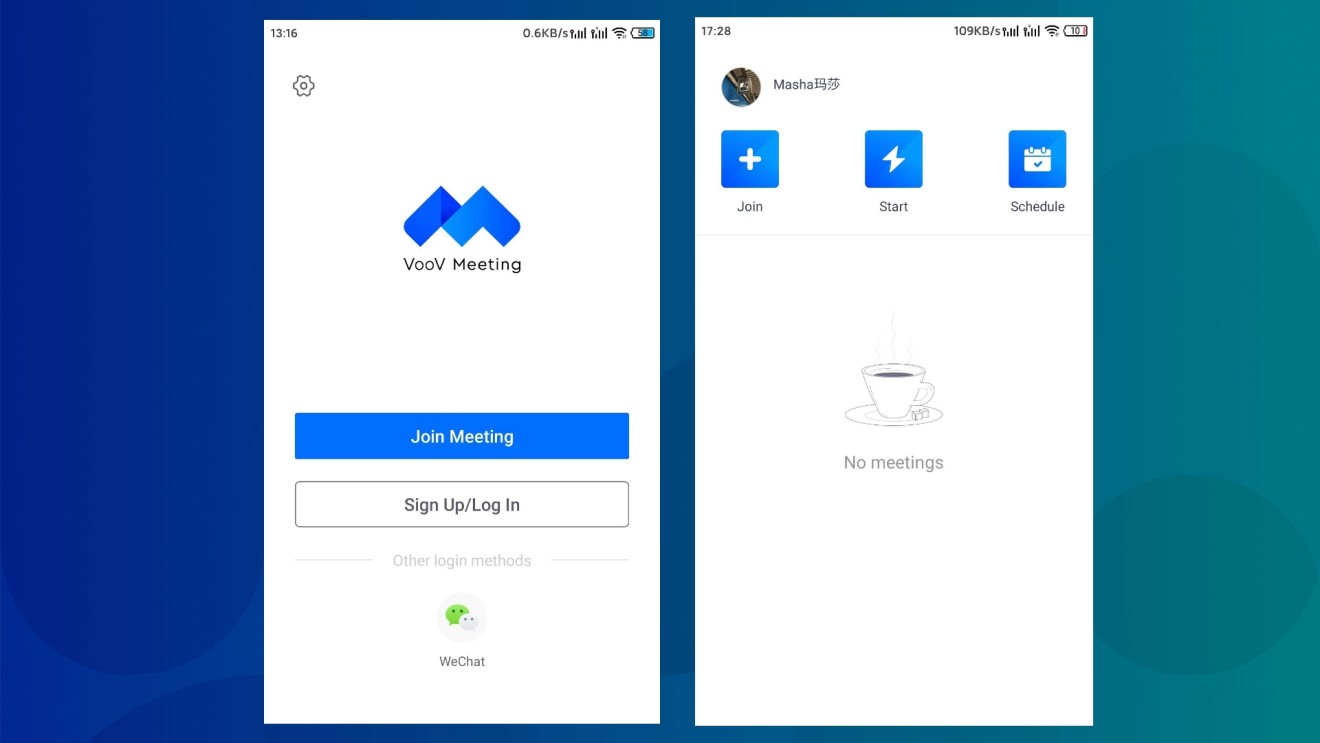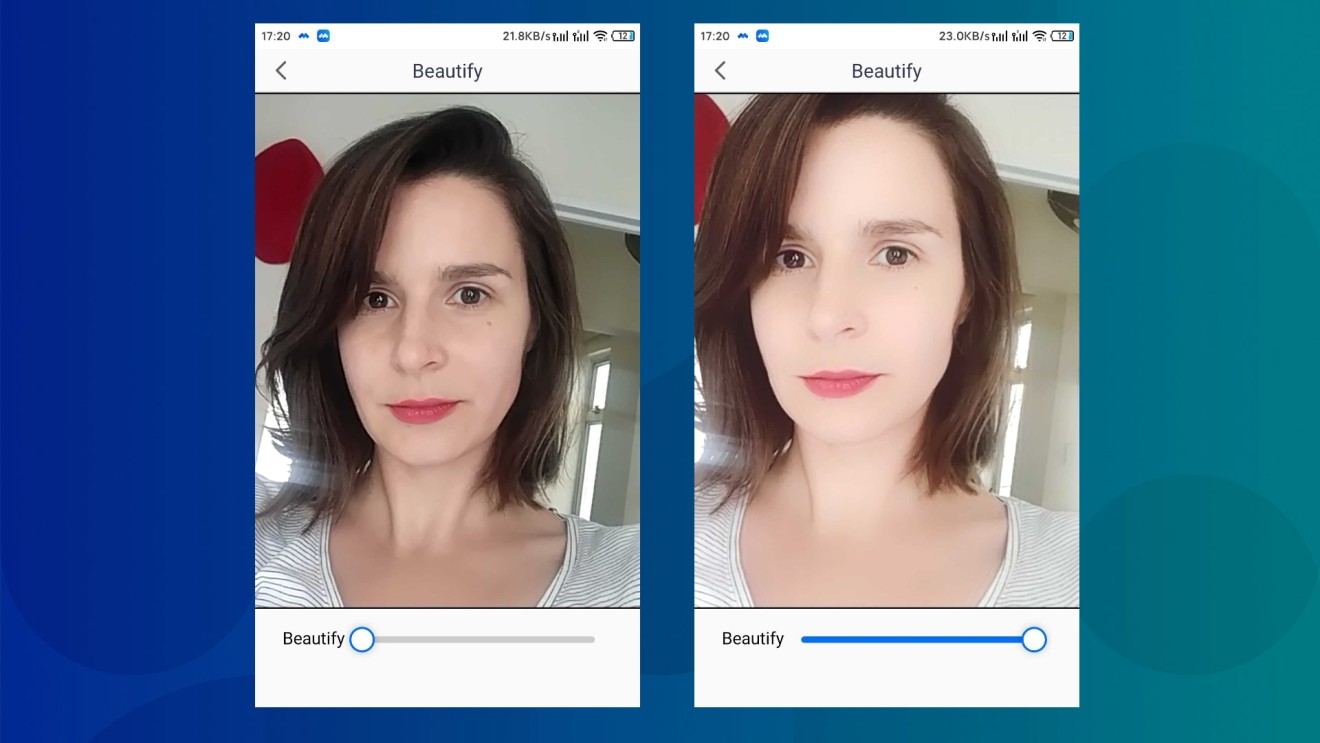
Tencent’s answer to Zoom can keep you looking airbrushed for coworkers
Tencent’s VooV isn’t as feature-rich as Zoom, but its beauty filter is heavy on lightening skin tones
As cities across the globe go into lockdown because of the Covid-19 pandemic, Zoom has emerged as a new video-calling star. The service has proven useful for connecting schools, workplaces and friends.
But now Zoom is facing more competition. Chinese tech giant Tencent is jumping into the ring with its own video conferencing service with an equally short but not quite as snappy name: It’s called VooV.
VooV is the international version of Tencent Meeting. The service launched last Friday and is available in more than 100 countries and regions, according to the company.

The name isn’t the only indication that VooV is keen on taking on Zoom. The platform also has many of the same features that helped make US-based Zoom the go-to video conferencing app for millions of remote workers. It has the same simple design and makes joining conference calls as hassle-free as entering an ID number.
Chinese smartphones and photo filtering apps have long attracted attention for offering a specific type of aesthetic in their filters: Large eyes, pointy chins and skin whitening. Tencent is applying that same recipe to VooV to make sure that we can all look extra white during our most important conference calls.

But when it comes to getting stuff done, VooV has some catching up to do with the competition. Over the years, Zoom has added features that have turned it into something more akin to a work collaboration platform. Instant messages can be used not just to exchange text, but also share images and audio and to form groups. It also has a “cloud phone system,” which is just a fancy way of saying it lets you call phone numbers like you used to do with Skype to call your grandma’s landline.
Another notable feature missing from VooV? Virtual backgrounds. This Zoom feature has been the inspiration for countless memes and videos for students and employees forced to replace real-life hangouts with calls from home.
But VooV might be able to gain traction in other ways. The platform seems well-connected to Tencent’s ecosystem of apps, including WeChat, the one social app China can’t live without. While the chat app isn’t so essential outside China, anyone doing business in China probably has a WeChat account.
(Abacus is a unit of the South China Morning Post, which is owned by Alibaba.)
VooV is currently free to use and can host up to 300 participants in a single meeting that can last up to 9,999 minutes -- nearly seven days. It’s also available as a mini program with more limited functionality inside WeChat.
Mini Programs: The apps inside apps that make WeChat so powerful
Purchase the China AI Report 2020 brought to you by SCMP Research and enjoy a 20% discount (original price US$400). This 60-page all new intelligence report gives you first-hand insights and analysis into the latest industry developments and intelligence about China AI. Get exclusive access to our webinars for continuous learning, and interact with China AI executives in live Q&A. Offer valid until 31 March 2020.

